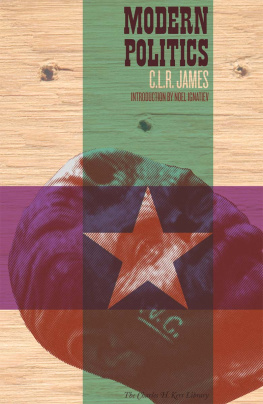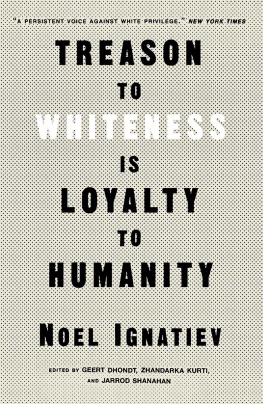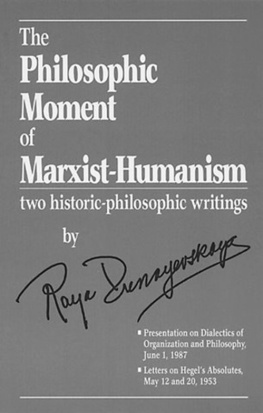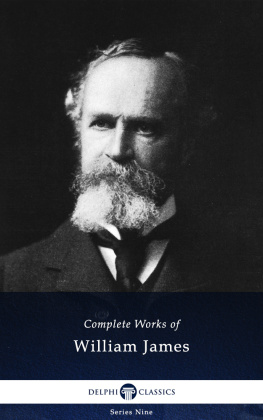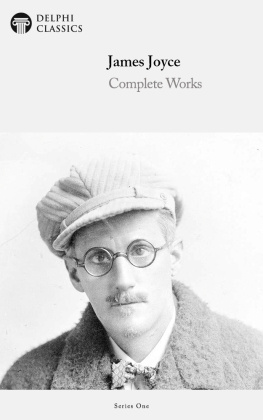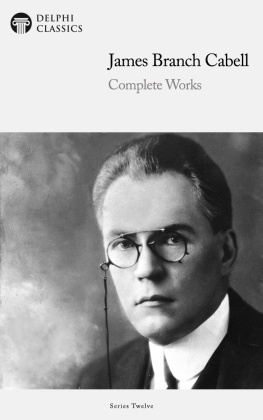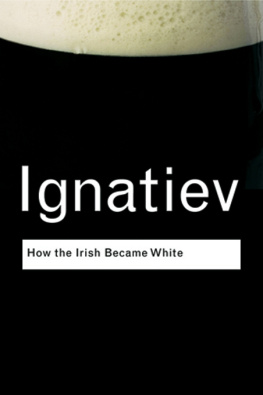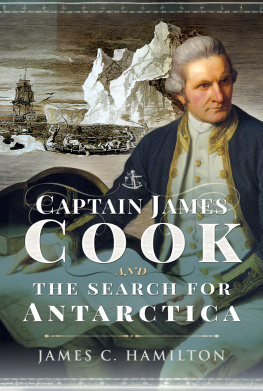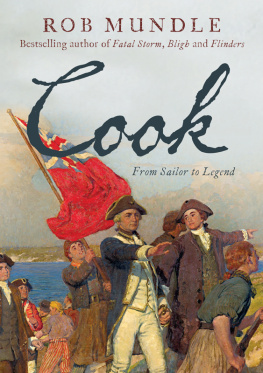Ignatiev Noel - A New Notion: Two Works by C. L. R. James
Here you can read online Ignatiev Noel - A New Notion: Two Works by C. L. R. James full text of the book (entire story) in english for free. Download pdf and epub, get meaning, cover and reviews about this ebook. City: Oakland;Calif, year: 2010;2008, publisher: PM Press, genre: Politics. Description of the work, (preface) as well as reviews are available. Best literature library LitArk.com created for fans of good reading and offers a wide selection of genres:
Romance novel
Science fiction
Adventure
Detective
Science
History
Home and family
Prose
Art
Politics
Computer
Non-fiction
Religion
Business
Children
Humor
Choose a favorite category and find really read worthwhile books. Enjoy immersion in the world of imagination, feel the emotions of the characters or learn something new for yourself, make an fascinating discovery.

- Book:A New Notion: Two Works by C. L. R. James
- Author:
- Publisher:PM Press
- Genre:
- Year:2010;2008
- City:Oakland;Calif
- Rating:3 / 5
- Favourites:Add to favourites
- Your mark:
- 60
- 1
- 2
- 3
- 4
- 5
A New Notion: Two Works by C. L. R. James: summary, description and annotation
We offer to read an annotation, description, summary or preface (depends on what the author of the book "A New Notion: Two Works by C. L. R. James" wrote himself). If you haven't found the necessary information about the book — write in the comments, we will try to find it.
A New Notion: Two Works by C. L. R. James — read online for free the complete book (whole text) full work
Below is the text of the book, divided by pages. System saving the place of the last page read, allows you to conveniently read the book "A New Notion: Two Works by C. L. R. James" online for free, without having to search again every time where you left off. Put a bookmark, and you can go to the page where you finished reading at any time.
Font size:
Interval:
Bookmark:


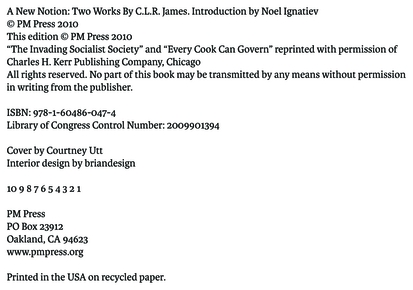
www.pmpress.org
NOEL IGNATIEV
Cyril Lionel Robert James was born in Trinidad in 1901 to a middleclass black family. He grew up playing cricket (which he credited with bringing him into contact with the common folk of the island). He also reported on cricket, and wrote a novel, several short stories, and a biography of Captain Cipriani, a Trinidadian labor leader and advocate of self-government. In 1932, James moved to England, where he covered cricket for the Manchester Guardian and became heavily involved in Marxist politics.
He wrote a history of the San Domingo revolution and a play based on that history, in which he and Paul Robeson appeared on the London stage. He wrote a history of the Communist International, The History of Negro Revolt, and translated into English Boris Souvarines biography of Stalin. Together with his childhood friend, George Padmore, James founded the International African Service Bureau, which became a center for the struggle for the independence of Africa, helping to develop Jomo Kenyatta, Kwame Nkrumah, and others. He also spent time with coal miners in Wales (among whom he reported he felt no consciousness of race).
In 1938, James came to the United States on a speaking tour, ending up staying for fifteen years. He had discussions with Trotsky in Mexico and took part in the Trotskyist movement in the U.S. While in the U.S., James wrote a study of Hegel and the application of the dialectic in the modern world, a study of Herman Melville, a three-hundred-page outline for a study of American life (later published as American Civilization), and a number of shorter works (including the first of the two in this volume). During World War II he lived among and organized sharecroppers in southeastern Missouri. In 1952 James was arrested and interned on Ellis Island; the following year he was deported from the U.S. (His deportation was perhaps one of the greatest triumphs of McCarthyism: how might history have been different had he been in the country during Malcolm Xs rise?)
For most of the next few years, C.L.R. James lived in the United Kingdom, returning to Trinidad briefly to edit The Nation (the paper of the Peoples National Movement) and serve as secretary of the Federal West Indian Labour Party (which advocated a West Indian federation). He left in 1961 after a falling out with Eric Williams, Prime Minister of Trinidad and a former student of Jamess, over Williamss turn toward supporting U.S. imperialism. Before leaving, he delivered a series of lectures aimed at providing the citizens of the new nation with a perspective on Western history and culture; these lectures, which for years were kept locked in a warehouse in Trinidad, have been published under the title, Modern Politics.
In 1968, taking advantage of the rising mood of revolution on the campuses, a group of black American students at Northwestern University brought James to the U.S. There he held university teaching posts and lectured widely until 1980. For the last years of his life, he lived in south London and lectured on politics, Shakespeare, and other topics. He died there in 1989.
In the West Indies, James is honored as one of the fathers of independence, and in Britain as a historic pioneer of the black movement; he is regarded generally as one of the major figures in Pan-Africanism. And he led in developing a current within Marxism that was democratic, revolutionary, and internationalist.
Obviously, this is a great variety of activities for a single individual to undertake. If the word genius has any meaning, then it must be applied to C.L.R. James. Most important, however, is not his individual qualities, but the worldview that enabled him to bring light to so many different spheres of activity. James says in Notes on Organization that when you develop a new notion, it is as if you have lifted yourself to a plateau from which you can look at familiar things from a new angle. What was Jamess notion, and how did it enable him to make unique contributions in so many areas?
For James, the starting point was that the working class is revolutionary. He did not mean that it is potentially revolutionary, or that it is revolutionary when imbued with correct ideas, or when led by the proper vanguard party. He said the working class is revolutionary and that its daily activities constitute the revolutionary process in modern society.
This was not a new idea. Karl Marx had said, first, that capitalism revolutionizes the forces of production and, second, that foremost among the forces of production is the working class. James, in rediscovering the idea and scraping off the rust that had accumulated over nearly a century, brought it into a modern context and developed it.
Jamess project was to discover, document, and elaborate the aspects of working-class activity that constitute the revolution in todays world. This project enabled James and his co-thinkers to look in a new way at the struggles of labor, black people, women, youth, and the colonial peoples, and to produce a body of literature far ahead of its time, works that still constitute indispensable guides for those fighting for a new world.
James and his co-thinkers focused their attention on the point of production, the scene of the most intense conflicts between capital and the working class. In two trailblazing works, An American Worker (1947) and Punching Out (1952), members of the Johnson-Forest Tendency led by James documented the emergence on the shop floor of social relations counter to those imposed by management and the union, relations that prefigured the new society.
Not every example James cited was from production. In Negroes and American Democracy (1956) he wrote, the defense of their full citizenship rights by Negroes is creating a new concept of citizenship and community. When, for months, 50,000 Negroes in Montgomery, Alabama do not ride buses and overnight organize their own system of transportation, welfare, and political discussion and decision, that is the end of representative democracy. The community as the center of full and free association and as the bulwark of the people against the bureaucratic state, the right of women to choose their associates as freely as men, the ability of any man to do any job if given the opportunity, freedom of movement and of association as the expansion rather than the limitation of human personality, the American as a citizen not just of one country but of the world all this is the New World into which the Negro struggle is giving everybody a glimpse...
That is the new society and there is no other: ordinary people, organized around work and activities related to it, taking steps in opposition to capital to expand their freedom and their capacities as fully developed individuals. It is a leap of imagination, but it is the key to his method. Of course the new society does not triumph without an uprising; but it exists. It may be stifled temporarily; capital, after all, can shut down the plant, or even a whole industry, and can starve out an entire community. But the new society springs up elsewhere. If you want to know what the new society looks like, said James, study the daily activities of the working class.
James insisted that the struggles of the working class are the chief motor in transforming society. Even before it overthrows capital, the working class compels it to new stages in its development. Looking back at U.S. history, the resistance of the craftsmen compelled capital to develop methods of mass production; the workers responded to mass production by organizing the CIO, an attempt to impose their control on the rhythms of production; capital retaliated by incorporating the union into its administrative apparatus; the workers answered with the wildcat strike and a whole set of shop-floor relations outside of the union; capital responded to this autonomous activity by moving the industries out of the country in search of a more pliant working class and introducing computerized production to eliminate workers altogether. The working class has responded to the threat of permanent separation from the means of obtaining life with squatting, rebellion and food riots; this is a continuous process, and it moves the society forward ending, as Marx said, in the revolutionary reconstitution of society at large, or in the common ruin of the contending classes.
Font size:
Interval:
Bookmark:
Similar books «A New Notion: Two Works by C. L. R. James»
Look at similar books to A New Notion: Two Works by C. L. R. James. We have selected literature similar in name and meaning in the hope of providing readers with more options to find new, interesting, not yet read works.
Discussion, reviews of the book A New Notion: Two Works by C. L. R. James and just readers' own opinions. Leave your comments, write what you think about the work, its meaning or the main characters. Specify what exactly you liked and what you didn't like, and why you think so.

